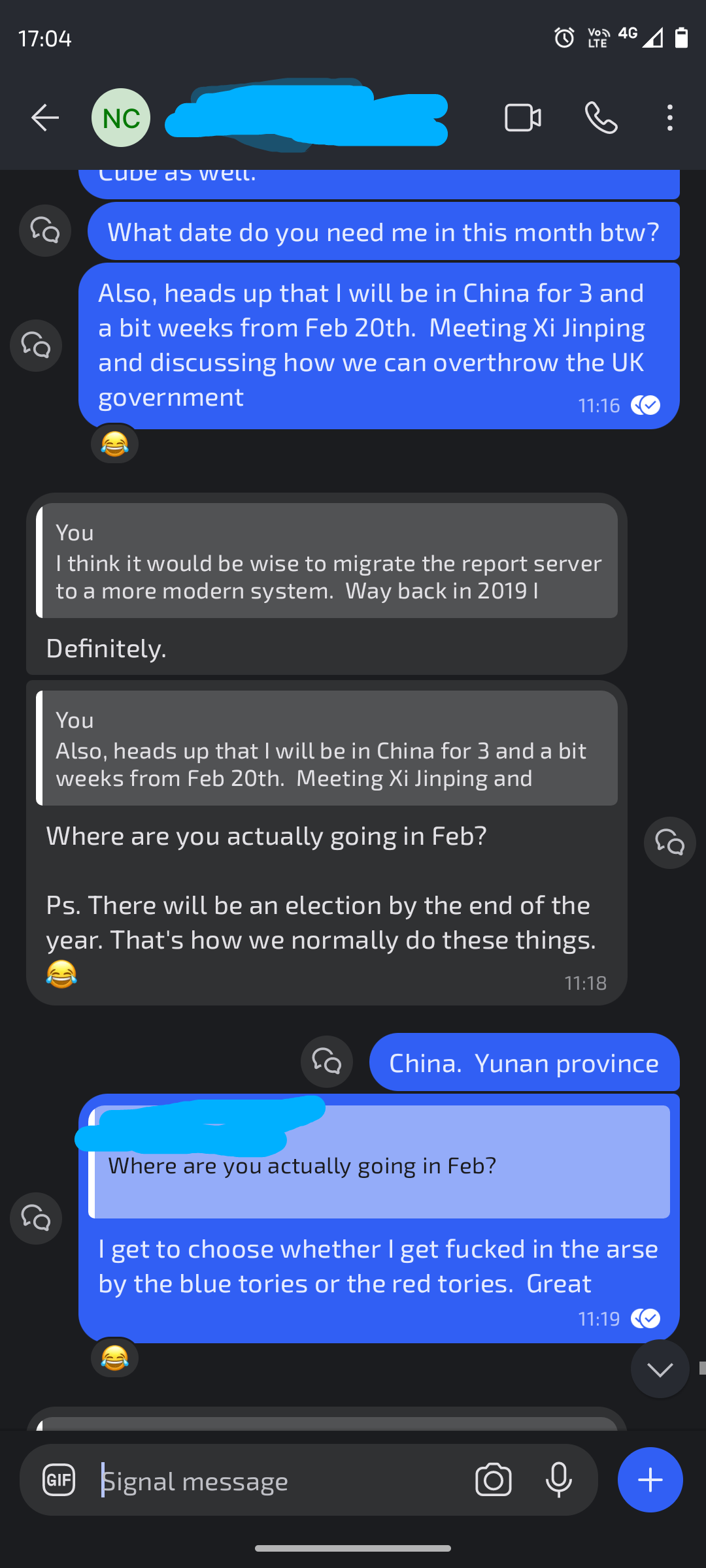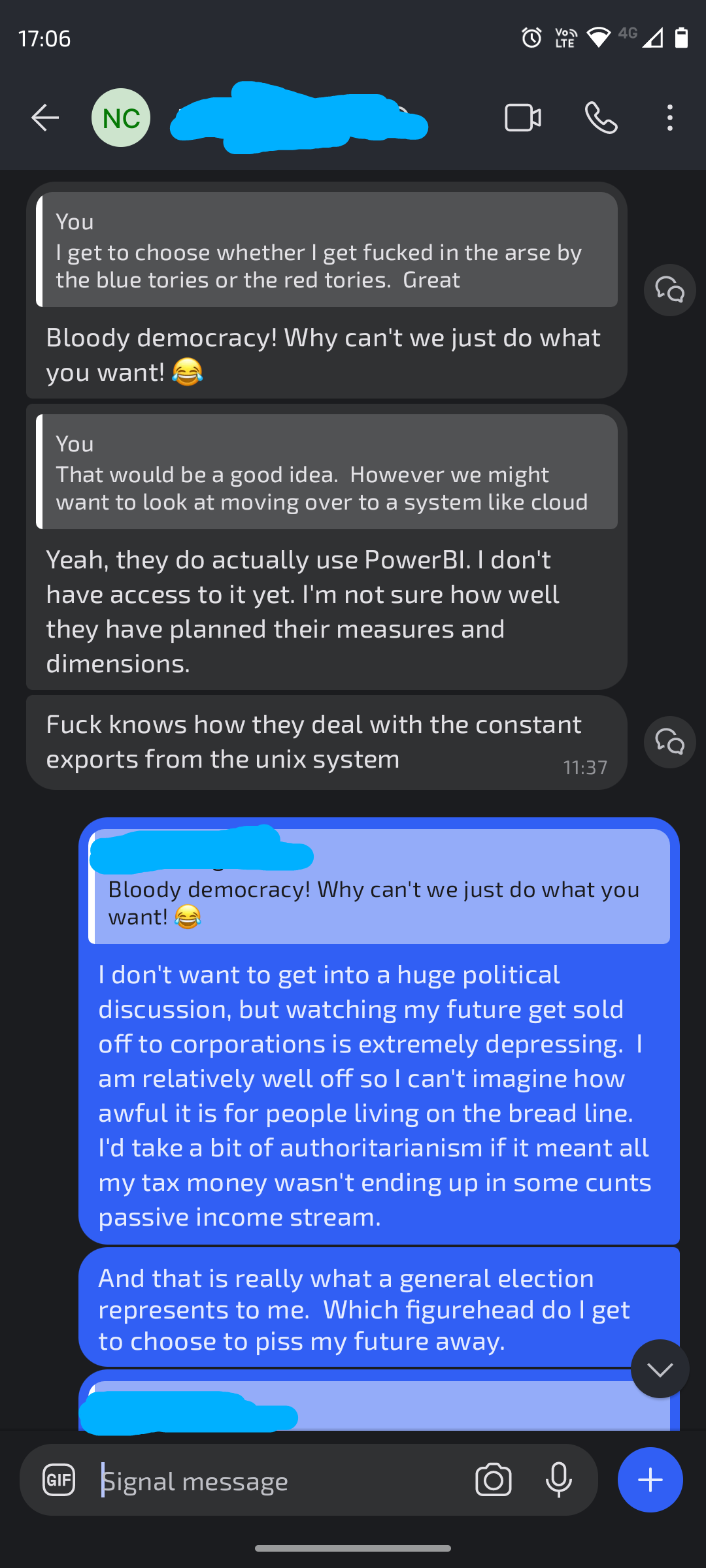Well in the UK you’ve got a multi party system where all major parties are full on imperialists. Sometimes they disagree about how to best do an imperialism and that makes them different somehow
Ongoing discussion I am having with my lib brained ex boss. Since I left the company he realised how much I did for it, and so I get to charge him exorbitant amounts of money to do simple shit. I also got to reveal to him that I’m a communist and that the only reason I never mentioned was because of the employer/wage-slave dynamic when I was working for him. Anyway, his arguments are weak and I enjoy “slamming” him and then taking his money.


Based AF
Wow, the way you speak to each other is very interesting. I’m not judging by the way, you’re much braver than I and I admire your bluntness. Still getting paid but not having to take orders, that’s pretty cool.
I worked there for nearly ten years and went from being a sysadmin to a full on developer. It’s one of the few areas where I can confidently say I made a huge difference. What I did for that company allowed them to dominate their competitors. The directors behaviour during COVID is what radicalised me and I took a big gamble by leaving. But they’ve never been able to replace me and that has given me a lot of leverage.

Maintenance of empire is too important to trust to the plebs
Lol. Those drones are going to be the shittest, most expensive drones in history.
Nonces all the way down.
Here’s one explanation I’ve heard, that I think makes a certain amount of sense. The United States can walk away from this war tomorrow, with its reputation as a great power intact; in fact, not having any more of its advanced weaponry blown up by the Russian orc Asiatic Hordes would go a long way toward preserving whatever international prestige the US military still has. Naturally, it would be a major geopolitical setback for Washington, and for the Democrats a political disaster. But it would not mean in any way the end of American global power. (The war itself actually undermines American power, and there may be a few people in the state apparatus who can see it – one or two high-place individuals who aren’t totally drunk on their own propaganda of the US as some unstoppable military and economic juggernaut).
The UK, on the other hand, wants to be seen as a great power, and this is a reputation they can very much lose. Defeat in Iraq and Afghanistan created demoralization at home, and a sense abroad that the UK was militarily and on the world stage basically inconsequential; which latter was especially galling, given that Americans already tend to view the UK as a colony (American talk of “our valued partners in London” has been for the past fifty years mostly a sop to British feelings). Nor did Brexit create some kind of prosperous, internationally significant “third bloc” distinct from both the US and the EU; the country has been going downhill economically, and its domestic politics have been even more overshadowed by Washington. Thus Ukraine becomes for the UK’s government a kind of last-ditch military adventure meant to salvage their reputation on the world stage. It is a war against the old enemy, Russia; and it will, if successful, show the superiority of the neoliberal order over the controlled, neo-Soviet economy Russia is supposed to be. But the war is very much not succeeding, and the UK is thus compelled to throw more money and equipment – and huge numbers of Ukrainians, not that they care about this – into a bottomless pit.





